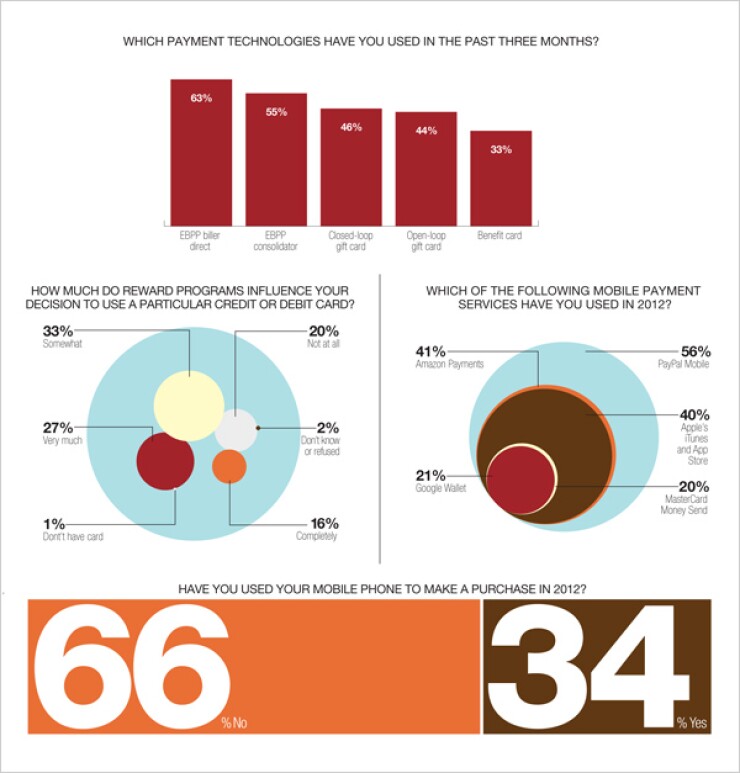
U.S. consumers' usAGe of mobile payments has grown dramatically in the past year. An IDC Financial Insights survey of 2,663 U.S. adults released in July found that a third of consumers - 33.9% - make purchases with their mobile phone. In the same survey last year, 19.3% of respondents had made a payment using a mobile device. (The study was conducted online, which skews the respondents toward computer and mobile device users. IDC makes sure its base reflects the U.S. population in terms of demographics and income ranges.)
Like Gartner, IDC uses a broad definition of mobile payments that includes Amazon, iTunes, App Store and PayPal payments that happen to be conducted on a mobile device. In fact, the most popular mobile payment providers, according to this study, are PayPal Mobile (56% of consumers say they've used it), Amazon Payments (41.2%) and Apple's iTunes and App Store combined (39.8%). Google Wallet, however, also has a healthy 21.3% adoption, which is strong considering it's only a little over a year old. Some of the growth in mobile payments can be chalked up to the rise in smartphone adoption, the ongoing popularity of mobile applications and the emergence of tablets. This influx of mobile payments is not making a big impact on the financial system so far, says Aaron McPherson, practice director, financial services for IDC and author of the report, "Business Strategy: Results from the 2012 Consumer Payments Survey."
"At present, it doesn't really matter because most of those payments are pass-throughs - they're typically passing through a bank credit card or debit card," he observes. In the case of iTunes, Apple is paying the interchange fees. "If anything, this is probably contributing to growth for the banks, because it's increasing the amount people are buying without cash."
Although the hype around NFC has reached the mainstream press and consumers are now aware that it exists, they don't get why it's a good idea, McPherson says. "The NFC camp still has a ways to go in terms of convincing consumers that it matters. I don't think consumer awareness is high enough yet that it will affect their choice of financial institution or card."





